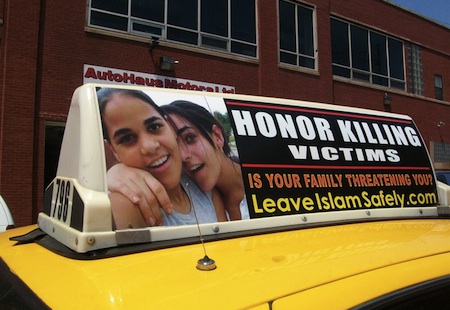Henry Louis Gates Jr., a Harvard professor and director of the W.E.B. Du Bois Institute for African and African American Research, was arrested at his home last Thursday. The facts which are not in contention: Gates and his driver, both black, arrived at his home and had trouble entering; the door was jammed, and Gates’ driver had to shove at it to get it to open. A neighbor called the police to report two black men with backpacks breaking into the house; a policeman arrived and asked Gates for identification. Gates showed an ID, and after some discussion in which Gates asked for the officer’s ID, the police officer left the house. Gates followed him outside, and the officer arrested him on charges of disorderly conduct.
Outside of those facts, the stories are–not to use too ironic a phrase–as different as black and white.
According to the arresting officer in the police report (PDF), Sgt. James Crowley, Gates yelled at the officer, alarming the neighbors, and thus warranting the arrest. He claimed that when he first met Gates, upon being asked, he immediately identified himself, stating that he was there to investigate a reported break-in. He claimed that Gates responded, “Why, because I’m a black man in America?” Crowley wrote that after asking if anyone else was inside, Gates told him it was “none of his business” and accused him of being racist. He says he “assured” Gates he was responding to a legitimate crime report, but Gates made a phone call to someone, asking for the “chief,” and told someone over the phone that he was dealing with a “racist police officer.” He than asserted that Gates turned to him and said that Crowley “had no idea who I was ‘messing’ with and that I had not heard the last of it.”
Crowley then said that he was surprised that the legitimate owner of the home would act in such a fashion. He said that he asked Gates for ID, and that Gates refused, but later produced a Harvard I.D. card, which Crowley called in to verify. He claims that Gates asked his name again and that he started to reply, but Gates yelled another racist accusation at him before he could complete an answer. Crowley claimed that Gates again threatened that he was not to be “messed with,” and asked again for identification; Crowley claimed that he stated that he had identified himself twice and would now leave, and Gates could talk to him outside if he wanted. Crowley wrote in his report that Gates was yelling so loudly that he could not report anything using his radio, which is why he left the house. He then claims that Gates responded, “ya, I’ll speak with your mama outside!” Gates, he said, followed him outside and “continued tumultuous behavior .. in view of the public.” He held that outside, he warned Gates twice that he was becoming “disorderly,” and claims that bystanders “appeared surprised and alarmed by Gates’s outburst.” After ignoring repeated warnings, he then arrested Gates.
Gates tells the story differently. In an interview the other day, he claims that he was returning from China to his Cambridge residence provided by Harvard University. He said that his driver, dressed in a suit, helped him with several bags–no backpacks–up to the front door, but it was jammed, with a footprint on the door suggesting that someone may have tried to break in. He went around to the kitchen door, unlocked it, and came to the front door from the inside, but still could not open the door. To get the door open, his driver shouldered the door open, damaging the lock. He said he then called someone at Harvard to get the damage repaired.
At that time, Sgt. Crowley arrived. Gates says that he began by asking, “Officer, can I help you?” and that Crowley asked him to step out on the porch. Gates says that he got a bad feeling then–that the officer would not ask him out on to the porch just to talk to him. He claims that the officer informed him that he was responding to a 911 call about a break-in, to which Gates replied, “That’s ridiculous because this happens to be my house. And I’m a Harvard professor.” When asked to prove it, Gates says he provided both a Harvard ID and a drivers license. At this point, Gates says that Crowley asked another (undefined) question, but Gates instead started insisting that the officer provide his name and badge number, because he wanted to file a complaint–Gates explained that the officer did not act like a policeman usually would, asking if it was his house, but instead started by trying to draw Gates outside, and Gates felt that this is not how a white person would be treated.
Gates said that he asked the officer to identify himself three times, but the officer refused; Gates claims he said, “You’re not responding because I’m a black man, and you’re a white officer,” at which time Crowley turned to leave. Gates followed him out to the porch, where he said that at least a half dozen policemen had gathered, and demanded the ID of another officer there–at which point the officer turned around, said “Thank you for accommodating our request. You are under arrest,” and handcuffed him.
As for the yelling, Gates claims that the officer’s charge is ridiculous, in that Gates had contracted a “severe bronchial infection” in China and had not yet fully recovered, thus rendering him incapable of shouting as Crowley claimed.
You can see how greatly the account clash. Each presents himself as calm, reasonable, and measured, and the other as unreasonable. In such cases, it is safe to presume that the truth lies somewhere in between. The question is, where in between? Crowley paints Gates as being far more unreasonable than Gates paints Crowley. Crowley asserts that Gates, a professor of African and African-American Studies at Harvard University, shouted, “ya, I’ll speak with your mama outside”; while that is not impossible, it does come across as incredibly unlikely, even if Gates were truly pissed off.
It would interesting to see what neighbors who witnessed the event would say about how Gates and the officer were acting outside–for example, was Gates in fact yelling loudly, and were the neighbors truly so “surprised and alarmed” that it warranted an arrest?
Short of that, one should ask if the officer’s reaction was warranted even if we take his word 100% and completely disregard Gates’ version of events. And I think that the answer to that is, clearly, the officer was out of line. Gates was, after all, the one being accused of breaking into his own home; while some people would be happy that police are on the job and assuring the security of one’s home from intruders, some people would not take it in that light. There’s no law saying you have to be grateful. And with the history in America of police and black people, one could at the very least understand how a black man might not be thrilled at being accused of breaking in to his own house.
But the deciding factor was not whether or not Gates was too ungrateful, but rather, was there cause to arrest him at all. Even if you had a severely pissed-off individual here, was he creating so difficult a situation that an arrest was necessary? Let’s face it–we’re talking about a 58-year-old man using a cane, and the worst that even Crowley claims that he’s doing is yelling. Is yelling on your front porch a crime, especially if there is a reason–whether you agree with it or not–for him to be so aggrieved?
What did Crowley feel would happen without the arrest? Did he think it would spiral into violence? While that might sound ridiculous, that is the prima facia reason that Crowley made–he made the arrest only after Gates’ “tumultuous” (dictionary definition: making a loud, confused noise; uproarious) yelling, which “surprised and alarmed” his neighbors. Crowley justifies the arrest by making it seem that Gates was acting in a way that was disruptive to some damaging degree.
I wasn’t there, of course, but from reading the accounts, I cannot possibly see this as being the case.
Instead, what appears to have happened is that Crowley arrested Gates for what is commonly referred to as “Contempt of Cop.” This is when a police officer, in his opinion, finds a citizen to be sufficiently disrespectful, and so arrests the citizen on a trumped-up charge–usually disorderly conduct or obstructing a police officer. The idea is to arrest the person, humiliate them in public, have them go through the process of being booked, and jail them overnight, fully intending all along to drop the charges and release them. Kind of an instant punishment that avoids any oversight or regulation. We can cause you severe humiliation, discomfort, and inconvenience, and jail you for a day, just because we want to.
This practice has some rather obvious problems, the greatest being potential abuse. Since the offense is completely dependent on the officer’s subjective, emotional judgment, it essentially becomes a license to put innocent people through an ordeal for not being respectful to a police officer. There are situations where you can easily imagine this to be justified, but Gates’ case does not even come close–as one would expect that any justified use of this practice should involve more than just offending the police officer.
One problem is that, in Seattle at least, it was found that blacks were eight times as likely to be arrested in this way than whites. This aspect is very likely to have an impact on how we see the Gates arrest–and since “contempt of cop” depends on a trumped-up charge, it follows that the police report will be prejudiced to justify the arrest, explaining Crowley’s implausible “neighbors were alarmed” rationale.
If police are to use “contempt of cop” at all–if police hold that they have to arrest people sometimes for bad behavior–then there should be an actual law drawn up for such circumstances. Otherwise, it is an unconstitutional assault on the citizen. That the police do this with full intent to drop the charges is simply an end-run around the Constitution. The fact that courts dismiss charges that are not dropped hint that such contempt-of-cop laws are not passed because they would not be constitutional.
So what we have is an abuse of police power. No one should be arrested for simply offending a police officer’s feelings.





